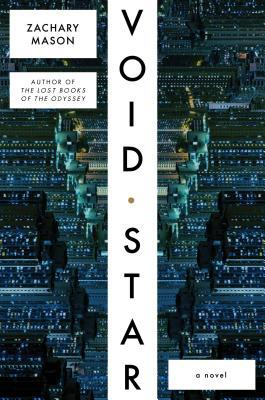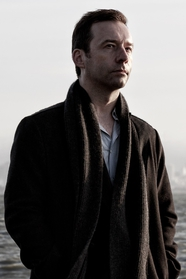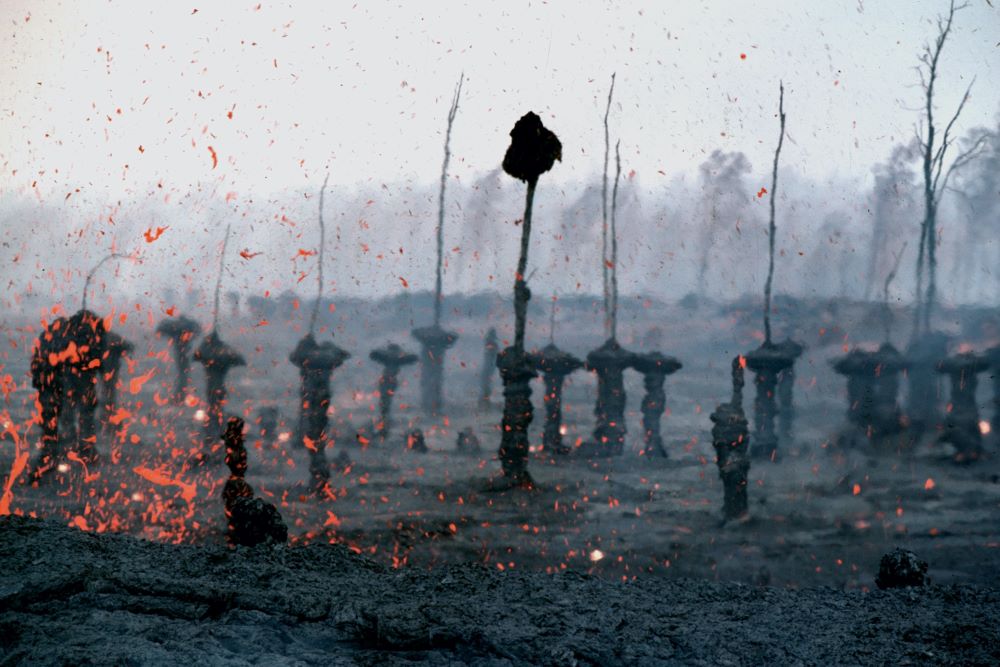interviews
Artificial Intelligence & Climate Change…in a Race to the End of the World
Zachary Mason is a novelist, an AI expert, and the author of a new book that will send a chill down your spine.

A few years ago, I might have said Zachary Mason’s vision of the future was grim, perhaps even dystopian. In 2017, it looks downright optimistic.

In his second novel, Void Star, climate change has re-landscaped the world, drones construct endless favelas, memory implants allow for perfect recall, and godlike AIs are responsible for most technological advances. The only problem with that last part — no one really knows what the AIs are thinking, or what they want.
Three characters start to figure it out: a professional AI whisperer (Irina), a Brazilian political scion (Thales), and a streetfighting autodidact who parkours across the San Francisco slums at night (Kern). They discover a frightening conspiracy that humankind may be powerless to stop.
Mason writes with the cold, poetic clarity of an AI himself, which makes sense considering he’s an expert in the field. Between writing Void Star and his first novel — the algorithmic riff on Homer, The Lost Books of the Odyssey — Mason works for a Silicon Valley startup. I recently spoke with him about the future, artificial intelligence, and non-Euclidean narratives.
Adam Morgan: Do you see the world of Void Star as a possible future or a probable future?
Zachary Mason: I guess everything has to be categorized as “possible,” but some parts seem more likely than others. I don’t think AI will go exactly the way it’s depicted in the book, but kind of like that. There have been major advances in AI applications, but right now it’s all basically pattern recognition. Actually understanding language and generating design — that doesn’t work yet. I suspect it will fairly soon, and then AIs will be writing most of the world’s software and industrial design. As far as runaway climate change, yes, it seems fairly likely. It’s hard to come to grips with that, emotionally, so people either freak out, become activists, or just pretend it’s not happening.
Adam Morgan: How did these three characters come to you?

Zachary Mason: The book turned out weird and non-linear. I knew I wanted to do something like that, so I just sort of sat down and started writing the chapter where Kern is getting the Black Ships. The rest of his character came about because a friend of mine was talking about A River Runs Through It. She was saying, “Yeah, it’s about what happens if all you do is just fly fish, day in and day out, and how that shapes you.” That was the seed for Kern, who somehow became this Muay Thai guy living in the favelas who has a laptop with all culture of the last 50 years on it.
Then I read A River Runs Through It and it’s nothing like my friend said, so that’s interesting.
Adam Morgan: Interesting. Given your background, I assumed you would have started with Irina or with Thales, just because they’re closer to your fields of expertise in AI and computer science. In addition to those over-educated characters, why was it important to include Kern’s perspective?
Zachary Mason: Kern seems to be self-generated, which I think is really interesting. He owns one shirt and a laptop held together with tape that he found in a garbage dump. He manages to create a cellphone and it’s completely ridiculous, but also reflective of life in that eventually, everything anyone’s ever published or filmed will fit on your phone. You could find enough books to, in effect, get any degree you wanted online for free — but people don’t, which is kind of fascinating.
Adam Morgan: Have you spent a lot of time talking to AIs similar to the way Irina communicates with them in Void Star?
Zachary Mason: I’ve been studying artificial intelligence since I was 19, but I’ve wanted to do it since I was about seven.
The two great questions are: what’s the universe, and what’s the mind? That’s what I’m interested in and what I plan to go back to fairly soon. As far as whether what I do is like what Irina does, I’m very sorry to say that it is not. I would love that. I would do anything for that. But I don’t have super-cognitive abilities to talk to AIs, and there are no AIs to commune with, so there are two primary problems.
AI is a weird field. It’s about where physics was in 1500. If you look at what people thought about physics in 1500, some of them were onto something and some of them weren’t. Important men with large beards at major universities were studying the humors and other total nonsense. So AI is exciting right now because it’s fascinating and it’s hugely important and nobody really knows anything about it.
“AI is exciting right now because it’s fascinating and it’s hugely important and nobody really knows anything about it.”
Adam Morgan: Irina’s memory implant reminded me of that Black Mirror episode where people could rewatch every moment of their lives via contact lenses. Do you think that kind of technology is inevitable? Would you want an implant like that? Assuming it wasn’t being used for nefarious reasons by a renegade AI.
Zachary Mason: I think that would be really fascinating, but what that came from was, I’ve always been preoccupied with how experience slips away and how frustrating that can be. Like, you look at an object and there it is, and then you look away and immediately you can only barely reconstruct the shadow of an outline.
I remember being in third grade and freaking out about that, and just trying to force myself to pay more attention and try harder to remember. Obviously it didn’t work. But yeah, I think it would be really interesting for a time to feel more stable. I understand that people do have memories kind of like that. Except it’s often a torment to them…mostly because they can’t control it, so sometimes they have movies of their past running through their experience.
Adam Morgan: Does your computer science background impact your approach to writing at all, or are they completely separate fields in your head?
Zachary Mason: There’s only a tiny bit of overlap at the core of things. I don’t think computer science has much to say about writing. Things like math and physics tend to, because they’re all about aesthetics and patterns, and that’s what writing is about. There’s a clear sense of an elegant equation or theorem, and there’s also a clear sense of elegant and compact sentence. So that kind of feels the same to me, although I’d be a little hard pressed to unpack that and say why.
Adam Morgan: This book could not be more different from The Lost Books of the Odyssey. Was your writing process for this significantly different from your writing process with the last book?
Zachary Mason: Yes. On all sorts of levels. I wanted to do something different from The Lost Books, where everything was super compact and mythic, and it’s set in no time in particular — nominally it’s Homeric Greece, but there are all kinds of anachronisms.
With Void Star, I wanted to linger on the texture of consciousness, and also on the texture of the world. That was a lot of fun and it comes a little more naturally. Initially I wrote everything out of sequence. I started with Kern and the black ships and then I kept going because I was letting things come, and then I tried to find the pattern that united them all. That was really hard and it wasn’t necessarily clear that there was a pattern. I mean, I look at it now and go, “Of course. That seems fairly obvious.” But at the time it really wasn’t.
Adam Morgan: You said you first wanted to go into AI when you were seven. What was the impetus there? What was that inspired by?
Zachary Mason: What I remember is lying in bed and thinking how cool it would be to teach a computer to talk, and I imagined these immense mainframes and white-coated scientists — because if you’re a computer scientist, you wear a white coat and carry a clipboard. So this was my image of what that would be like. I’m not exactly sure where it came from. but the idea certainly stuck.
Getting into grad school was kind of a shock. I went early and I had a very naive and idealistic idea of what academia was like. I expected everybody to just be totally committed to the life of the mind and uncovering the computational character of cognition. But in reality, it was just some reasonably smart people who were professional publishers of papers. And it drove me crazy.
Adam Morgan: That sounds like my MFA experience.








